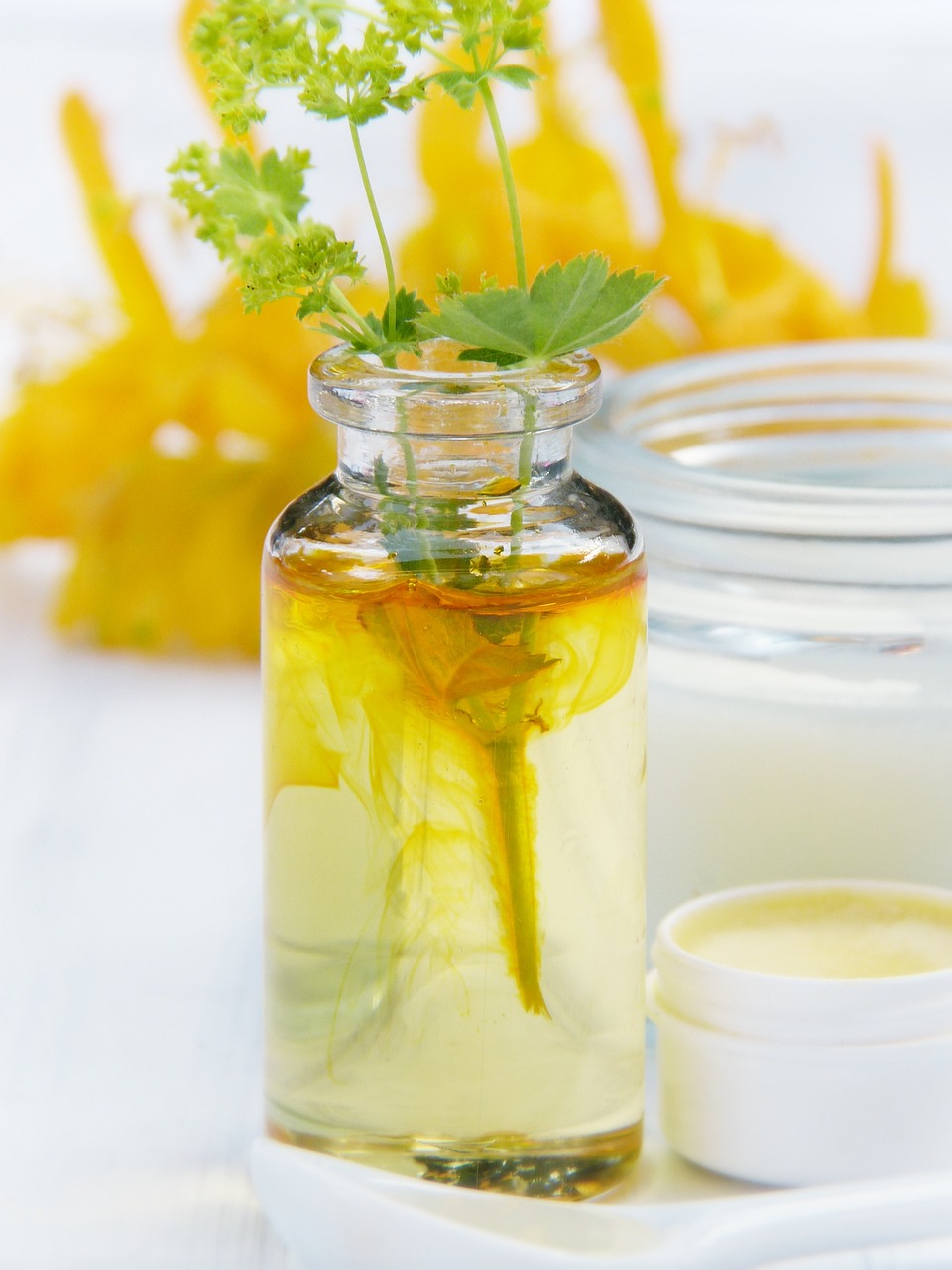
Jojoba Oil: Benefits, Uses, and Tips
- What is Jojoba Oil?
- Historical Background and Traditional Uses
- The Science Behind Jojoba Oil's Benefits
- Benefits of Jojoba Oil for Different Skin Types
- How to Use Jojoba Oil in Your Skincare Routine
- In DIY Skincare Recipes
- Potential Side Effects and Precautions
- Frequently Asked Questions about Jojoba Oil
- Conclusion: Is Jojoba Oil Right for You?
Skincare enthusiasts have long been searching for the perfect ingredients to enhance their routines, and jojoba oil is one that consistently stands out. Known for its versatility and numerous benefits, jojoba oil has earned a permanent place in the world of skincare. This guide will explore everything you need to know about jojoba oil, from its origins to its benefits, how to incorporate it into your skincare routine, and the science behind why it works.
What is Jojoba Oil?
Jojoba oil is a natural liquid wax extracted from the seeds of the jojoba plant (Simmondsia chinensis), a shrub native to the deserts of North America. Despite being commonly referred to as an “oil,” it is actually a wax ester, which closely resembles the natural oils (sebum) produced by our skin. This unique property makes jojoba oil an excellent choice for skincare, as it can mimic the skin’s natural moisture, helping to balance oil production and protect against dryness.
Historical Background and Traditional Uses
The use of jojoba oil dates back centuries. Indigenous tribes in North America were among the first to discover its benefits, using it to treat wounds, soothe skin, and condition hair. The oil’s natural healing properties made it a valuable resource in regions where the harsh desert environment could be particularly unforgiving on the skin. Over time, jojoba oil has evolved from a traditional remedy to a staple ingredient in modern skincare.
The Science Behind Jojoba Oil’s Benefits
To understand why jojoba oil is so effective, it’s essential to look at its chemical composition. Jojoba oil is composed primarily of long-chain fatty acids and alcohols, with a structure that closely resembles human sebum. This similarity allows jojoba oil to easily penetrate the skin, delivering moisture and nutrients deep into the layers. It also contains antioxidants like vitamin E, which help protect the skin from environmental damage.
Non-Comedogenic Properties
One of the most significant benefits of jojoba oil is its non-comedogenic nature, meaning it doesn’t clog pores. This makes it an ideal moisturizer for all skin types, including those prone to acne. Unlike heavier oils, jojoba oil balances oil production without contributing to breakouts.
Anti-Inflammatory and Antibacterial Effects
Jojoba oil contains natural anti-inflammatory properties, which can help soothe irritated skin and reduce redness. Additionally, its antibacterial properties can help prevent bacterial infections, making it a great option for individuals with acne-prone skin.
Rich in Antioxidants
Jojoba oil is packed with antioxidants, particularly vitamin E. Antioxidants protect the skin from free radicals, which can cause premature aging. Regular use of jojoba oil can help reduce the appearance of fine lines and wrinkles, keeping the skin looking youthful and vibrant.
Benefits of Jojoba Oil for Different Skin Types
Jojoba oil is a versatile ingredient suitable for various skin types. Here’s how it can benefit each:
Dry Skin
For individuals with dry skin, jojoba oil provides intense hydration without the greasy feel often associated with other oils. Its ability to lock in moisture makes it an excellent choice for combating dryness, flakiness, and rough patches.
Oily and Acne-Prone Skin
Those with oily or acne-prone skin might shy away from oils, fearing they will exacerbate their condition. However, jojoba oil can actually help regulate oil production. By mimicking the skin’s natural sebum, it signals the skin to produce less oil, reducing the likelihood of clogged pores and breakouts.
Sensitive Skin
Sensitive skin can be challenging to manage, as many products can cause irritation. Jojoba oil’s gentle, soothing properties make it suitable for even the most sensitive skin types. It can help calm redness, irritation, and inflammation, providing relief without causing adverse reactions.
Mature Skin
As skin ages, it naturally loses moisture and elasticity. Jojoba oil’s hydrating properties can help restore moisture to mature skin, reducing the appearance of fine lines and wrinkles. Its antioxidant content also helps protect the skin from environmental stressors that contribute to aging.
How to Use Jojoba Oil in Your Skincare Routine
Incorporating jojoba oil into your skincare routine is simple, and there are numerous ways to use it. Here are some of the most popular methods:
As a Moisturizer
Jojoba oil can be used as a standalone moisturizer or mixed with your favorite facial cream. After cleansing your face, apply a few drops of jojoba oil directly to your skin, gently massaging it in until fully absorbed. Its lightweight texture makes it an excellent choice for both day and night use.
As a Makeup Remover
Jojoba oil is an effective and gentle makeup remover, capable of dissolving even waterproof makeup. Apply a few drops of oil to a cotton pad and gently wipe away makeup, then follow up with your regular cleanser. This method not only removes makeup but also leaves the skin feeling soft and hydrated.
As a Lip Balm
Jojoba oil can be used as a natural lip balm to keep your lips soft and moisturized. Apply a small amount to your lips as needed, particularly in dry or cold weather. You can also mix it with beeswax to create a DIY lip balm.
As a Hair Treatment
Jojoba oil is not only beneficial for the skin but also for the hair and scalp. It can be used as a deep conditioning treatment to hydrate dry, damaged hair. Simply apply the oil to your scalp and hair, leave it on for 20-30 minutes, then rinse thoroughly. Regular use can help reduce dandruff and promote a healthy scalp.
In DIY Skincare Recipes
Jojoba oil is a versatile ingredient that can be used in various DIY skincare recipes, such as face masks, scrubs, and serums. Its stable nature and long shelf life make it an excellent base for creating your own skincare products.
Jojoba Oil vs. Other Oils: A Comparative Analysis
When choosing an oil for your skincare routine, it’s important to consider how jojoba oil compares to other popular oils:
Jojoba Oil vs. Coconut Oil
Coconut oil is a well-known moisturizer, but it can be too heavy for some skin types and has a higher likelihood of clogging pores. Jojoba oil, on the other hand, is lighter and non-comedogenic, making it a better option for acne-prone and sensitive skin.
Jojoba Oil vs. Argan Oil
Argan oil is rich in essential fatty acids and vitamin E, making it a great choice for moisturizing and nourishing the skin. However, it is slightly thicker than jojoba oil and may not absorb as quickly. Jojoba oil’s fast absorption and lightweight feel make it more suitable for those who prefer a less oily finish.
Jojoba Oil vs. Rosehip Oil
Rosehip oil is known for its anti-aging properties and is packed with vitamins A and C. While it is excellent for reducing scars and fine lines, it is more fragile and has a shorter shelf life compared to jojoba oil. Jojoba oil’s stability and versatility make it a more reliable option for everyday use.
Potential Side Effects and Precautions
While jojoba oil is generally safe for all skin types, it’s important to be aware of potential side effects and take necessary precautions:
Allergic Reactions
Although rare, some individuals may experience allergic reactions to jojoba oil. It’s recommended to perform a patch test before using the oil on your face or body. Apply a small amount of oil to your inner forearm and wait 24 hours to see if any redness or irritation occurs.
Overuse
While jojoba oil is highly beneficial, overuse can lead to excessive oiliness, particularly in individuals with naturally oily skin. It’s best to start with a small amount and gradually increase if needed.
Interaction with Other Products
Jojoba oil is generally compatible with most skincare products, but it’s important to consider how it interacts with other active ingredients. For example, when using products with retinoids or exfoliating acids, it’s advisable to apply jojoba oil afterward to help soothe and hydrate the skin.
Sustainable Sourcing and Environmental Impact
As consumers become more conscious of the environmental impact of their skincare choices, sustainable sourcing of ingredients has become increasingly important. Jojoba oil is considered an environmentally friendly option for several reasons:
Low Water Usage
Jojoba plants are drought-resistant and require minimal water to thrive, making them a sustainable crop in arid regions. This low water requirement reduces the environmental impact associated with its cultivation.
Biodegradable and Non-Toxic
Jojoba oil is biodegradable and non-toxic, posing no harm to the environment when used or disposed of. This makes it a safe and eco-friendly choice for skincare enthusiasts.
Ethical Farming Practices
Many jojoba oil producers adhere to ethical farming practices, including fair trade and organic farming. By choosing jojoba oil from reputable sources, consumers can support sustainable and ethical production.
Frequently Asked Questions about Jojoba Oil
Here are some common questions and answers regarding the use of jojoba oil in skincare:
Can Jojoba Oil Be Used on All Skin Types?
Yes, jojoba oil is suitable for all skin types, including dry, oily, sensitive, and mature skin.
How Long Does Jojoba Oil Last?
Jojoba oil has a long shelf life, typically lasting up to two years when stored in a cool, dark place. Its stable nature means it doesn’t go rancid as quickly as other oils.
Is Jojoba Oil Safe for Use During Pregnancy?
Jojoba oil is generally considered safe for use during pregnancy, but it’s always best to consult with a healthcare provider before using any new skincare products.
Can Jojoba Oil Help with Acne Scars?
While jojoba oil may not completely eliminate acne scars, its moisturizing and anti-inflammatory properties can help improve the appearance of scars over time.
How Much Jojoba Oil Should I Use?
A little goes a long way with jojoba oil. Typically, 2-3 drops are sufficient for the entire face, and more can be used for other areas of the body as needed.
Conclusion: Is Jojoba Oil Right for You?
Jojoba oil has earned its reputation as a skincare powerhouse for good reason. Its ability to mimic the skin’s natural oils, combined with its non-comedogenic, anti-inflammatory, and antioxidant properties, makes it a versatile and effective ingredient for nearly everyone. Whether you’re looking to hydrate dry skin, balance oil production, or simply add a nourishing step to your routine, jojoba oil is a valuable addition to any skincare regimen.
By understanding the benefits, uses, and potential considerations associated with jojoba oil, you can make an informed decision about whether this natural oil is the right choice for your skin. With its rich history, scientifically backed benefits, and growing popularity, jojoba oil continues to be a beloved staple in the world of skincare.


